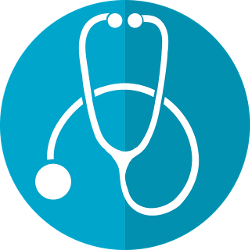I sometimes wonder why I so often hear people referring to “ונשמרתם מאוד לנפשותיכם” as though it’s a Torah source for the requirement to protect ourselves from illness and injury.
Don’t get me wrong: I believe that the Torah most definitely does expect us to care for ourselves and to listen to the advice of medical experts on how to do that. And I know that the Rambam himself uses השמר לך ושמור נפשך as a source, even though that verse – like the other two that are often used – is actually referring to our responsibility to keep all mitvos (or, in some cases, just avoid idolatry).
The Levush (יורה דעה סימן קטז) actually acknowledges that the simple meaning of those passages are unconnected to health. But writes:
מכל מקום סמכו חז”ל על מקראות הללו ואסרו כל הדברים המביאין את האדם לידי סכנה
But did Chazal actually quote any of those verses? Well, there is this Gemara in Brachos 32b:
ת”ר מעשה בחסיד אחד שהיה מתפלל בדרך בא שר אחד ונתן לו שלום ולא החזיר לו שלום המתין לו עד שסיים תפלתו לאחר שסיים תפלתו א”ל ריקא והלא כתוב בתורתכם רק השמר לך ושמור נפשך וכתיב ונשמרתם מאד לנפשותיכם כשנתתי לך שלום למה לא החזרת לי שלום אם הייתי חותך ראשך בסייף מי היה תובע את דמך מידי
The rabbis taught: It once happened that a certain chassid was praying along the road. An officer came by and offered a greeting, but (the chassid) didn’t reply. (The officer) waited until he’d finished his prayers. After he’d finished his prayers (the officer) said to him: “Empty person! Does it not say in your Torah ‘Just protect yourself and guard your life’ (Devarim 4:9) and ‘Take great care of your lives’? (Devarim 4:15) When I greeted you, why did you not reply? If I were to cut your head off with a sword, would you have any claim on your blood?”
So the only place I’m aware of in Chazal that offers a source for a health mitzva puts the superficially-related words into the unauthorised mouth of a non-Jewish officer. While we’re all sympathetic to the principle, is that enough to qualify as a source?
